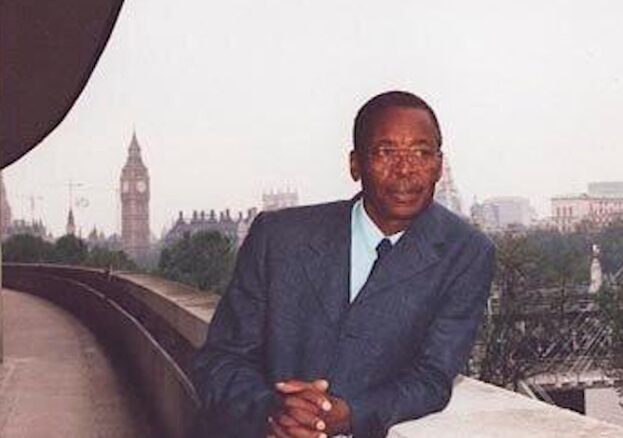
Testimonies to Len Garrison founder of the Black Cultural Archives and thought leader on Black History in British Schools
Online and physical tribute to the outstanding legacy of Len Garrison founder of the Black Cultural Archives. This session will hear from some of the many people he helped and worked with speaking on his impact and legacy.
Please Note: this is a hybrid event for 50 people at the physical venue and up to 250 on the link which will be Microsoft Teams. Link will be sent 24 hours before the event
This event is organised by Mia Morris OBE and Joel Stewart with the support of Black History Walks
Full list of speakers to be announced. Here is a sample of some of the history we will cover:
Len Garrison, who has died of a heart attack aged 59, was arguably the most important figure in the black British community’s exploration and understanding of its history. A historian, poet and educationist, his work in creating and developing materials based on the experience of African and Caribbean pupils gave a major impetus to the development of a multicultural curriculum in British schools.
Len was born in St Thomas, Jamaica. His father and mother migrated to Britain in 1952 and 1953, and, in 1954, he joined them in west London. While still at Kingsley grammar school, Chelsea, he pursued his interest in photography by working as a part-time cinema projectionist in Clapham Junction, and went on to study the subject at King’s College London. He then became the specialist in medical photography at Guy’s hospital.
In 1971, he took a development studies diploma at Ruskin College, Oxford, where he wrote a dissertation on the Rastafarian movement in Jamaica. In 1976, he graduated in African and Caribbean history at Sussex University and, in 1992, gained an MA in local history at Leicester University.
Len’s studies were the prelude to a career that combined academic research with a role in public life. By the late 1970s, inner-city school authorities and teachers were crying out for materials and textbooks that dealt with the history and background of their African and Caribbean pupils – and Len set out to fill the vacuum.
He founded the African and Caribbean Educational Resource (Acer), and began by pioneering education packs at Dick Shepherd school, in Brixton, south London. The project was supported by the Inner London Education Authority, and Acer materials have since been used all over the country.
Acer also spawned a series of schemes for older children and young adults, the best known of which was the Young Penmanship awards for creative writing. These helped to launch the careers of several black professionals, including music critic Clive Davis, novelist and barrister Nicola Williams, playwright Michael McMillan and Dr Michael Beckles.
In 1988, Len went to Nottingham as director of Afro-Caribbean Family and Friends (Acff), a move that expanded the reach of his work. He established one of the first effective mentoring projects, known as Build, and persuaded the King’s Fund to back Timeout, a scheme for supporting the carers of orphaned and abandoned black children. He also set up East Midlands African Caribbean Arts. A high point of this period was the 1993 exhibition, The Black Presence In Nottingham, at the city’s museum.
In 1997, Len returned to Brixton to work on the Black Cultural Archives (BCA) that he had started in 1980. In a sense, he had been assembling the BCA since he was a student; every black activist knew him, because he would turn up everywhere, taking photographs, making notes and collecting documents.
In the late 1980s, his extensive collection of documents, memorabilia and artefacts – a vital resource for museums and archives – finished up at the BCA premises in Coldharbour Lane, in the heart of Brixton market. In 1997, the BCA joined with Middlesex University to create the Archive and Museum of Black History.
Len Garrison was unwavering and sincere in defence of his work and, unlike many who followed him, never gave the impression that it was a stepping stone to establishment acceptance. A loving and generous man, he devoted himself to uniting the black diaspora. He is survived by his wife Marie, whom he married in 1987, and their son Tunde.
